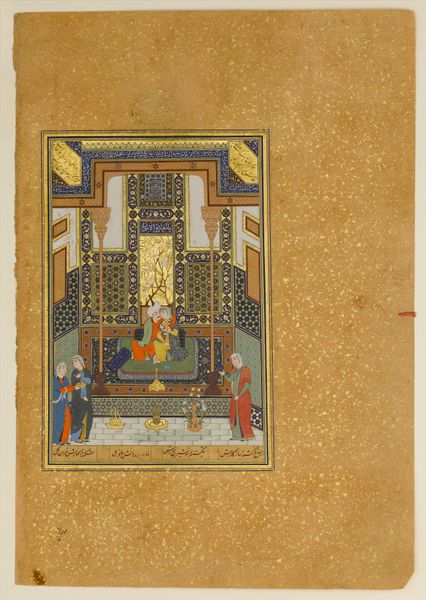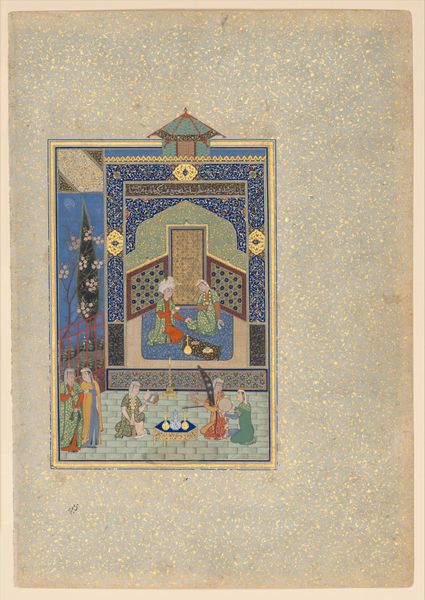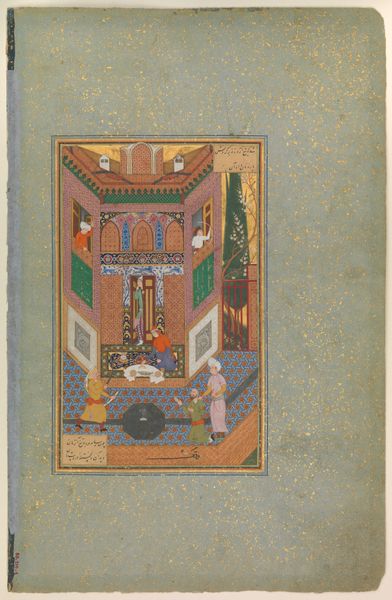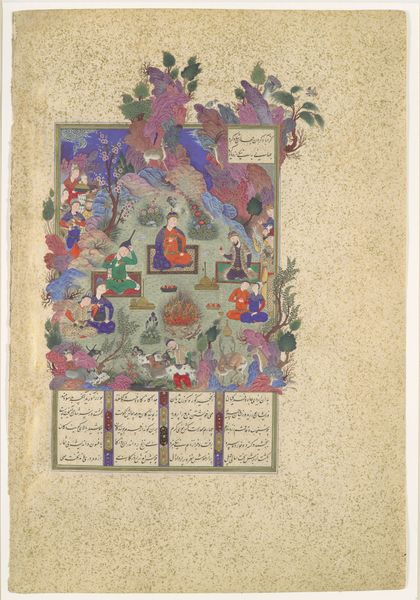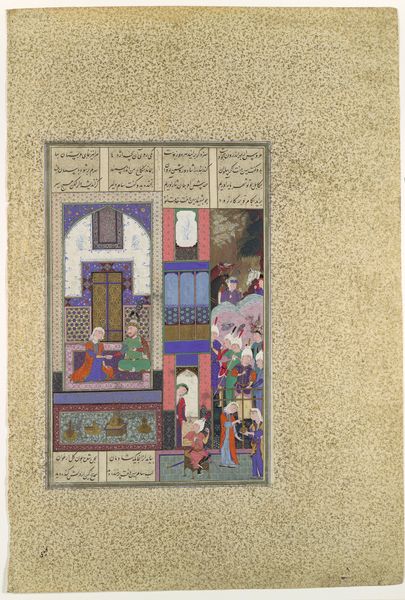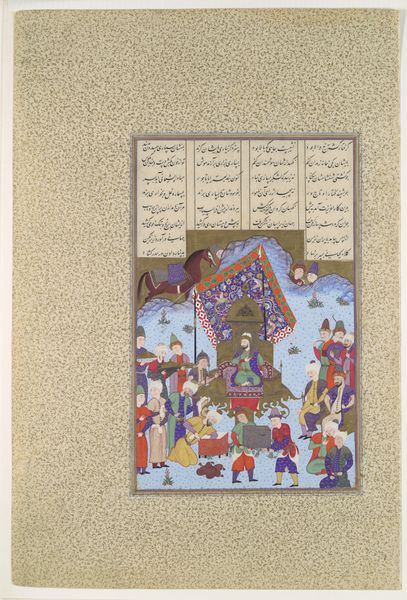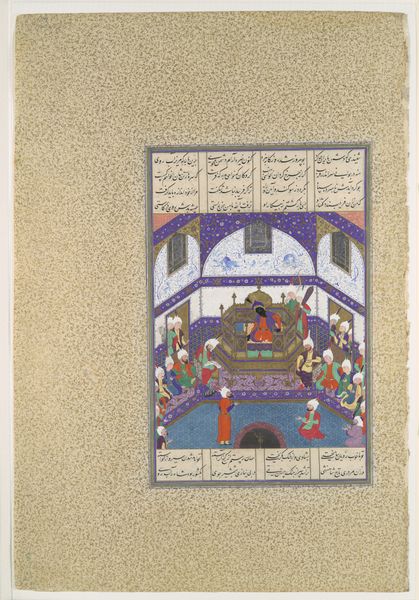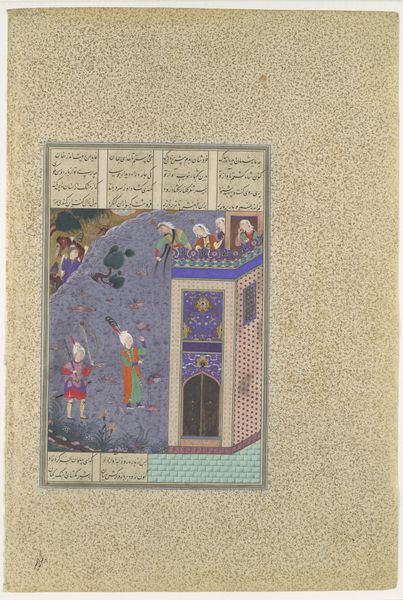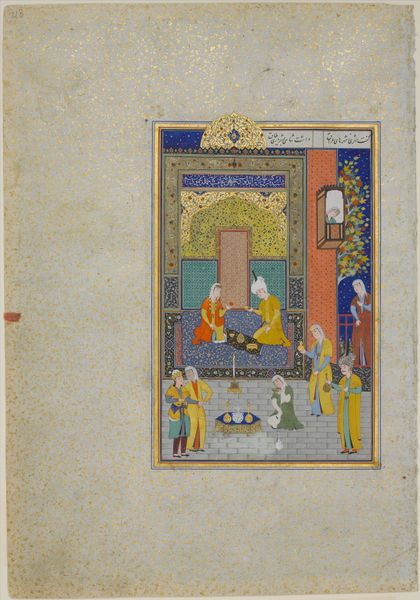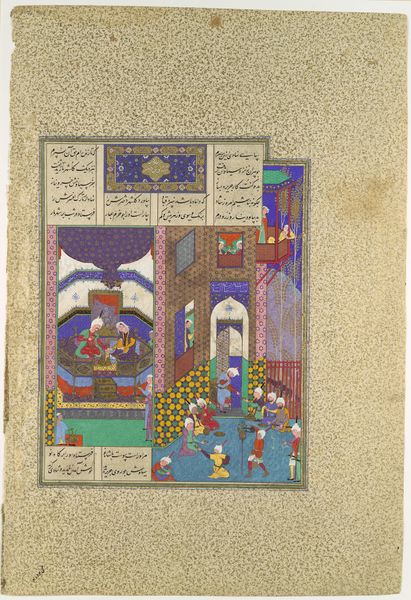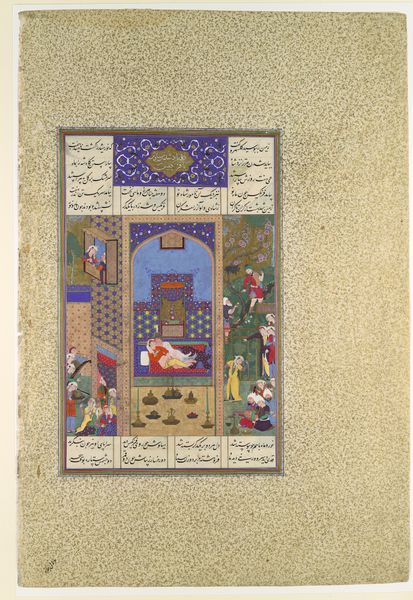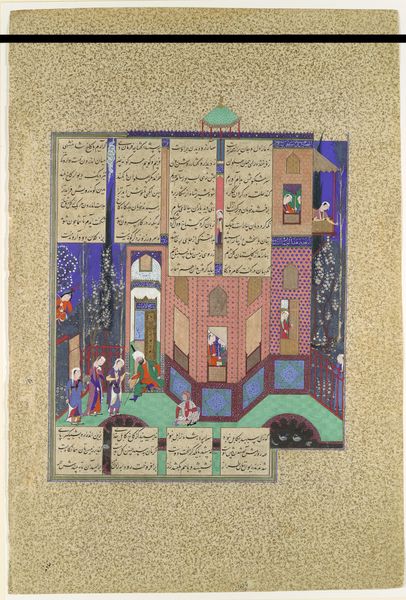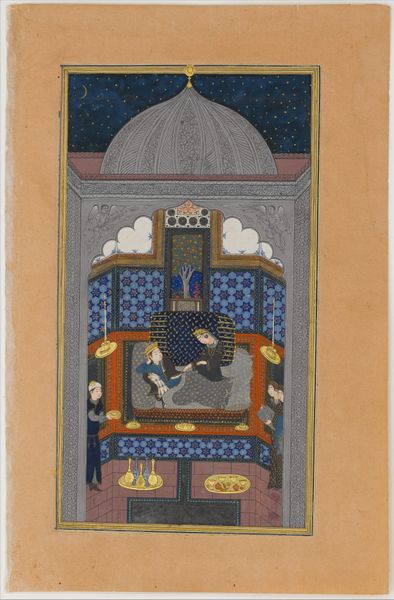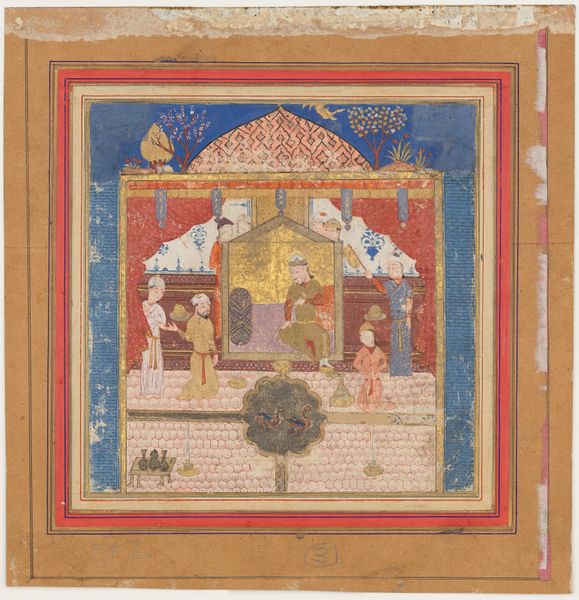
"Bahram Gur in the Dark Palace on Saturday", Folio 207 from a Khamsa (Quintet) of Nizami of Ganja 1500 - 1550
0:00
0:00
painting, watercolor
#
water colours
#
narrative-art
#
painting
#
watercolor
#
islamic-art
#
musical-instrument
#
miniature
Dimensions: Painting: H. 8 in. (20.3 cm) W. 4 1/2 (11.4 cm) Page: H. 12 1/2 in. (31.9 cm) W. 8 3/4 in. (22.2 cm) Mat: H. 19 1/4 in. (48.9 cm) W. 14 1/4 in. (36.2 cm)
Copyright: Public Domain
This painting of "Bahram Gur in the Dark Palace on Saturday" is from a Khamsa, or Quintet, by Nizami of Ganja. In this image, social codes speak volumes. Here we have the Sasanian king Bahram Gur visiting a palace, each day of the week a different coloured palace, inhabited by a different princess. Royal patronage supported such lavish manuscript production. It also determined the aesthetic values that shaped it. The geometric patterns, the carefully orchestrated balance of figures, and the vibrant colors, were all prized. It’s worth considering how courtly art served to project power and legitimize the ruler's authority. It also tells us about gender roles, ideas about diplomacy, and other cultural values. To understand this painting, one would need to know the history of the Khamsa as a literary form, and its importance in Persian culture. We must also analyze the painting’s style and iconography within the context of Islamic art.
Comments
No comments
Be the first to comment and join the conversation on the ultimate creative platform.
